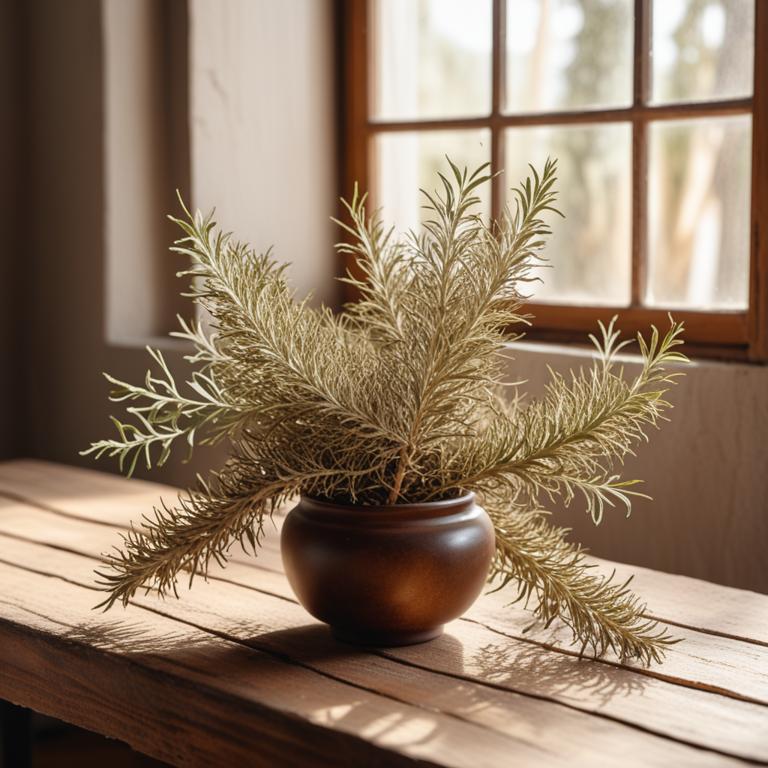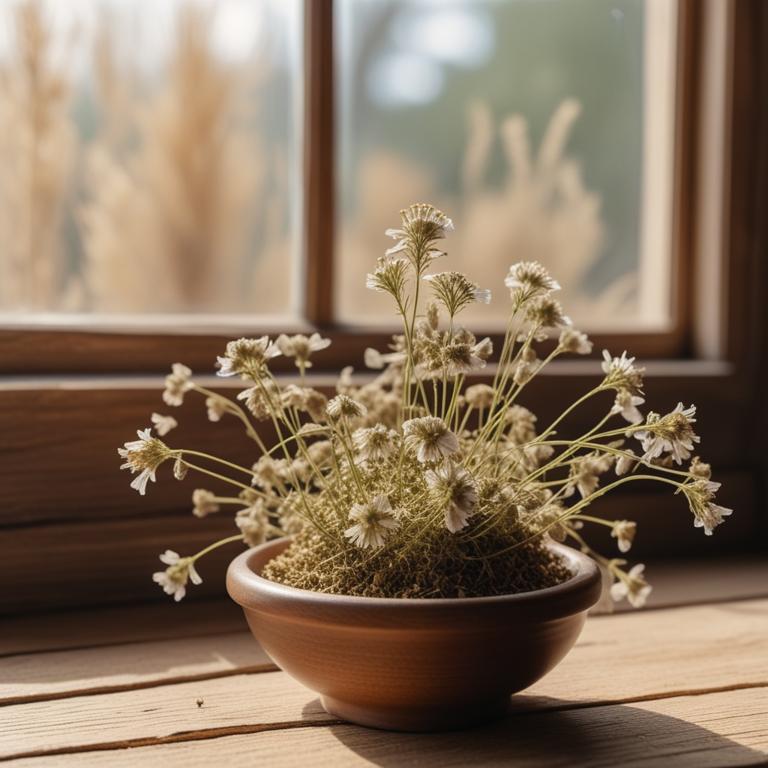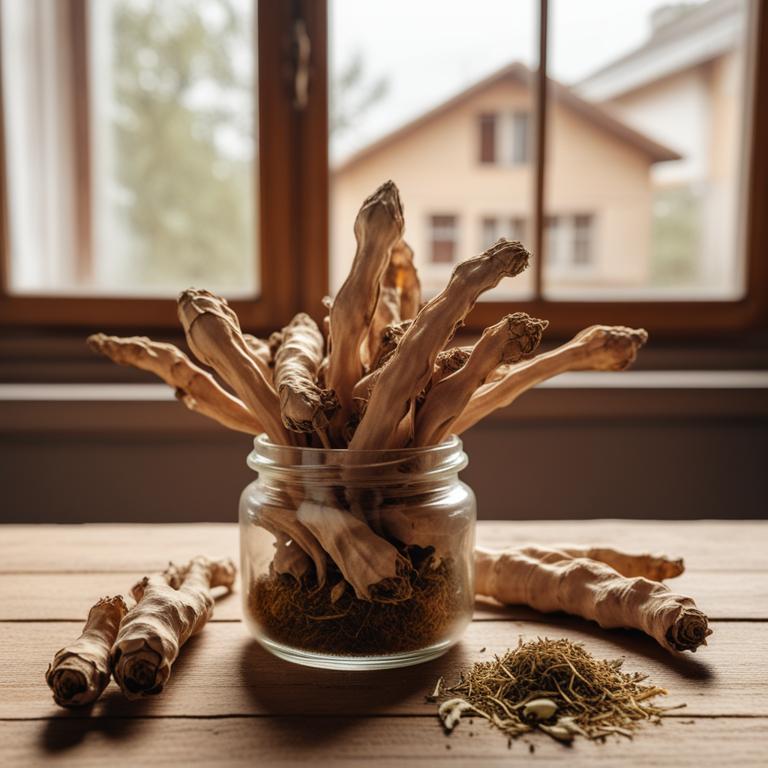Updated: Dec 1, 2024
Tonsillitis: Causes, Herbal Remedies, and Homeopathic Preparations

Tonsillitis is a painful infection that affects the tonsils, the two small masses of tissue at the back of the throat.
When you have tonsillitis, it can be hard to swallow, speak, or even breathe. You might feel a sore throat, fever, and swollen lymph nodes in your neck. Tonsillitis can make everyday activities feel like a struggle. Tonsillitis is usually caused by a bacterial or viral infection. It can be spread through the air when someone coughs or sneezes, or by touching contaminated surfaces and then touching your face.
Sometimes, it's a secondary infection that develops after a cold or flu. There are some herbal remedies that can help soothe and heal tonsillitis. Herbs like slippery elm and marshmallow root have anti-inflammatory properties that can reduce swelling and ease pain. Licorice root and echinacea are known for their immune-boosting properties, which can help fight off the infection. These herbs can be prepared in different ways, such as making a tea by steeping the dried herbs in hot water. You can also make a syrup by mixing the herbs with honey and water.
Some people even use lozenges or candies made from these herbs to soothe their sore throats.
Table of Contents
What induces the condition of tonsillitis?
The main causes of tonsillitis are usually related to infections.
One of the most common causes is a viral infection, which can be caused by viruses like Adenovirus and Coronavirus. These viruses can easily spread from person to person through coughing, sneezing, and close contact. When a virus infects the tonsils, it can cause inflammation and swelling, leading to tonsillitis. Another common cause of tonsillitis is a bacterial infection. Specifically, Streptococcus pyogenes is a type of bacteria that can cause tonsillitis. This bacteria can spread through contact with an infected person's saliva or mucus.
Once it infects the tonsils, it can cause a severe sore throat and fever. In some cases, tonsillitis can be caused by a combination of viral and bacterial infections. For example, a viral infection can weaken the immune system, making it easier for a bacterial infection like Streptococcus pyogenes to take hold. Influenza, or the flu, can also cause tonsillitis. When the flu virus infects the tonsils, it can cause inflammation and swelling, leading to tonsillitis. This is often accompanied by other symptoms like fever, cough, and body aches.
It's worth noting that these infections can be spread through close contact with an infected person, or by coming into contact with contaminated surfaces and objects.
What are the advantages of using herbal treatments for tonsillitis?
Using herbs for tonsillitis can be very beneficial.
One of the main advantages is that they can help reduce the severity of symptoms, such as sore throats and fever. These herbs have anti-inflammatory properties, which can help bring down swelling and ease pain.
They can also help fight off the underlying infection, reducing the duration of the illness. Additionally, many herbs have antimicrobial properties, which can help prevent the spread of the infection to other parts of the body. Some herbs can also help boost the immune system, making it easier for the body to fight off the infection on its own.
Furthermore, these herbs are often natural and non-invasive, making them a good alternative to antibiotics and other medications that can have side effects.
What are the main medical herbs used for tonsillitis relief?

When it comes to treating tonsillitis, herbs can be a great help.
Echinacea purpurea is a popular herb known for its immune-boosting properties, which can help fight off the infection causing tonsillitis. Its active compounds, like cichoric acid and echinacoside, have anti-inflammatory effects that can reduce swelling and pain in the throat. Another helpful herb is Zingiber officinale, or ginger, which has natural anti-inflammatory properties that can soothe a sore throat. Its active compound, gingerol, can also help reduce nausea and fever associated with tonsillitis. Ginger has been used for centuries in traditional medicine to treat various health issues, including digestive problems and colds. Licorice root, or Glycyrrhiza glabra, is another herb that can help alleviate tonsillitis symptoms.
Its active compound, glycyrrhizin, has anti-inflammatory effects that can reduce swelling and pain in the throat. Licorice root also has antimicrobial properties that can help fight off bacterial infections causing tonsillitis. Sambucus nigra, or elderberry, is a herb that has been traditionally used to treat colds and flu, which can often lead to tonsillitis. Its active compounds, like anthocyanins and flavonoids, have anti-inflammatory and antiviral properties that can help reduce symptoms of tonsillitis. Elderberry can also help boost the immune system, which can aid in fighting off the infection. Eucalyptus globulus, or eucalyptus, is a herb that is often used to relieve respiratory issues, including sore throats. Its active compound, eucalyptol, has decongestant properties that can help open up airways and reduce congestion in the throat.
Eucalyptus can also help soothe a sore throat and reduce inflammation.
What are the top herbal preparations used to treat tonsillitis?

When it comes to treating tonsillitis, herbal preparations can be a great option.
Decoction is a method of making a strong tea by boiling herbs in water for a long time, which helps to break down the plant's cells and release its medicinal properties. This method is particularly useful for herbs like Slippery Elm, which has anti-inflammatory properties that can help soothe a sore throat. Infusions, on the other hand, are made by steeping herbs in hot water for a shorter amount of time than decoctions. This method is gentler on the herbs and is often used for delicate herbs like Echinacea, which has immune-boosting properties that can help fight off infections. Tinctures are concentrated liquid extracts of herbs that are made by soaking them in a solvent like alcohol or glycerin. Tinctures are easy to take and can be added to water or taken directly under the tongue.
They're particularly useful for herbs like Echinacea and Yarrow, which have antimicrobial properties that can help combat bacterial and viral infections. Herbal teas are a popular way to consume herbs, and for good reason. They're easy to make and can be enjoyed hot or cold. Herbs like Thyme and Ginger have antimicrobial properties that can help reduce inflammation and kill off bacteria that can cause tonsillitis. Finally, salves are topical creams or ointments that can be applied directly to the affected area. They're often used for herbs like Calendula, which has anti-inflammatory properties that can help soothe a sore throat and reduce swelling.
Salves can also be used to protect the skin and prevent further irritation.
Additional Resources:
Which herbs are contraindicated in individuals with tonsillitis?
If you have tonsillitis, it's best to be careful with certain herbs.
For example, Rosmarinus officinalis, also known as rosemary, can be too drying for your throat when you're already dealing with an infection. This can make your symptoms worse and slow down the healing process. Artemisia absinthium, or wormwood, is another herb to watch out for, as it can cause your tonsils to swell even more, making it harder to breathe and swallow.
Thymus vulgaris, or thyme, is often used to help with respiratory issues, but if you already have tonsillitis, it might not be the best choice. Thyme can stimulate the tonsils and make them work harder, which can be counterproductive when you're trying to let the infection heal. Hydrastis canadensis, also known as goldenseal, is sometimes used to treat infections, but its antibacterial properties can be too strong for your tonsils, causing them to become even more inflamed. Cinchona officinalis, or cinchona, is a plant that's often used to treat fever and inflammation, but its active ingredient, quinine, can be too harsh for your tonsils when you have an infection.
Using these herbs when you have tonsillitis can make your symptoms worse, so it's better to stick with gentle, soothing remedies that can help your tonsils heal without exacerbating the problem.
FAQ
Are there any specific herbs that can prevent tonsillitis?
Ginger and sage are two herbs that may help prevent tonsillitis.
Ginger has anti-inflammatory properties that can reduce swelling in the throat, while sage has antimicrobial properties that can fight off infections.
Drinking tea or taking supplements made from these herbs may help keep your throat healthy and reduce the risk of tonsillitis.
Is it safe to use herbal remedies for tonsillitis during pregnancy?
Using herbal remedies for tonsillitis during pregnancy can be a bit tricky.
Some herbs, like echinacea, may be safe in small amounts, but others, like sage and thyme, might stimulate the uterus. It's also possible that certain herbs could interact with other medications or worsen symptoms.
It's best to be cautious and talk to a healthcare provider before trying anything.
Are there any herbs that can reduce the frequency of tonsillitis?
Some herbs, like echinacea and sage, may help reduce the frequency of tonsillitis.
Echinacea is known for its immune-boosting properties, while sage has antibacterial properties that can help fight off infections.
These herbs can be consumed as tea or added to meals to potentially alleviate tonsillitis symptoms.
Can i combine different herbal remedies for tonsillitis?
You can combine different herbal remedies for tonsillitis, but be careful.
Some herbs, like echinacea and sage, have similar effects and might not work well together. Try pairing herbs with different properties, like echinacea for immune boost and licorice root for soothing the throat.
Start with small amounts to see how your body reacts.
Related Articles
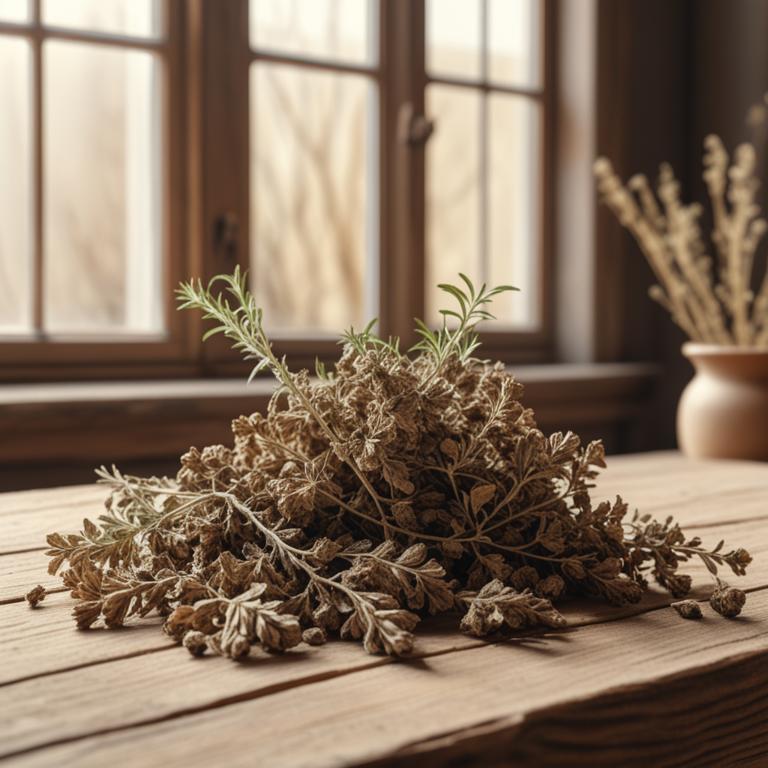
Strep Throat: Causes, Herbal Remedies for Sore Throat, and Medicinal Herbs
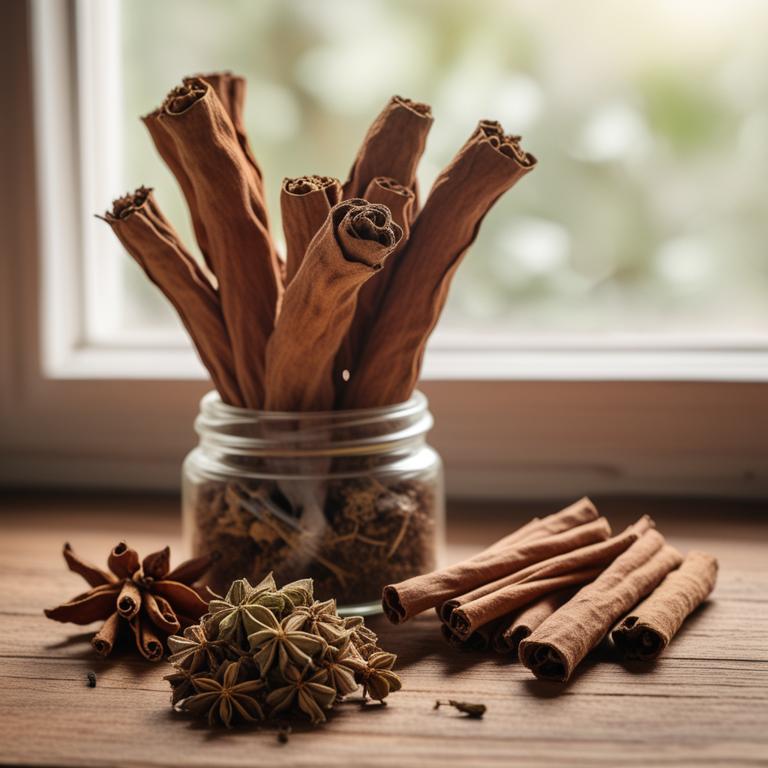
Enlarged Spleen and Herbal Medicine: Understanding the Connections

Allergies: Exploring Causes and Natural Remedies with Medicinal Herbs

The Science and Treatment of Fever with Medicinal Herbs

The Role of Medicinal Herbs in Preventing Infection
